The remains of eggs Benedict, hash browns, and Bloody Marys littered the brunch table as my girlfriends and I exchanged stories from the previous month. Among the tales of work, men and family, one story stood out. A friend explained how she and her partner had handled their tough year: They went to church.
“But, please,” she added, “Don’t spread that around the department.”
Normally, such an admission would not be accompanied by a plea for silence. Churches form the cornerstone of many communities, and more than 80 percent of Americans claim some religious affiliation (http://religions.pewforum.org/reports). But, we were scientists – graduate students in the Department of Ecology and Evolutionary Biology at the University of Colorado at Boulder – and my friend did not want to have her religious beliefs critiqued at work.
I cringed at her request and realized she easily could induce snide comments if she came out of the religious closet.
Now, I do not mean to infer that the head of department would have shunned her to a shoddy, dank desk in the basement or that our fellow graduate students would have plastered her car with Darwin fish. But, graduate school is hard enough. Even if a confession of religious beliefs elicits no more than a raised eyebrow, my friend did not want to risk contrary questions, or add “religious” to her professional resume.
In our department Darwin’s finches decorated the walls. Religion, as one might expect, sometimes became the butt of jokes. It was a place where a remark about religion could just as easily result in eye rolling as it could lead to a serious, thoughtful conversation. Many scientists are so fixated on the discussion of evolution that we – and I do include myself here – sometimes forget that religion offers far more than an answer to our ancestry.
We, as scientists, state over and over again that religion can’t answer questions about science, but the counter is also true. Science can’t provide all the answers to questions about the human condition. For so many, faith provides an anchor in their lives – an avenue for love, support and community. And yet, in the scientific hallways, we forget the significance religion holds for many people.
One year, we decided to confront that bias head-on, during our annual teacher workshop on evolution, where the graduate students explained evolution-themed teaching materials and lesson plans. That year we invited a member of The Clergy Letter Project as a guest speaker. The Clergy Letter Project represents a group of over 13,000 members from various religions who do not believe science and religion are destined to snap at each other’s throats forever.
I regret to admit that at this time I still itched to take on the “anti-evolution evangelists.” Sitting down for the lecture, I haughtily waited for the lecturer to push “teaching the controversy” or even rancorous sermonizing about evil scientists. Instead, I heard a different message, a message of harmonious ideals, as stated by Michael Zimmerman, Founder and Executive Director of The Clergy Letter Project on their website (http://www.theclergyletterproject.org/rel_evol_sun.htm):
Numerous clergy from most denominations have tremendous respect for evolutionary theory and have embraced it as a core component of human knowledge, fully harmonious with religious faith.
The speech compelled me and, I can safely say, a few of the other young scientists in the room to question the preconceived “Stands Against Science” label that we had slapped onto all clergy. Assumptions in science can quickly ruin an experiment, and I badly needed to re-evaluate my assumptions about how religious people view the sciences – an exercise all scientists and science writers who find themselves speaking in broad generalities about religion should do.
If we as a group can grasp that a large spectrum of beliefs about science and evolution exists within groups of religious individuals, shouldn’t we hypothesize that a cornucopia of religious beliefs exist among scientists? Shouldn’t my friend feel comfortable mentioning that she attended church on Sunday in our science department?
On Oct. 27, 2014, Pope Francis made a point of speaking about evolution. “The evolution in nature is not opposed to the notion of Creation, because evolution presupposes the creation of beings that evolve,” Pope Francis said, according to a Vatican newswire transcript.
The statement does not significantly change the stance of the Catholic Church on evolution, but it adds a few more bricks to the bridge spanning the gap between religion and science.
Perhaps members of the scientific community should start mixing some mortar of our own to add to the expanding bridge. And the easiest place to start will be in our own departments, professional organizations, writing groups and conversations.
All of our schools stress the importance of not discriminating – race, sex, sexuality, you name it – and many leading organizations are looking to support more female and multicultural scientists, for which I give kudos. But, true diversity in the scientific community should result in an improved exchange of ideas, opinions and beliefs, including religious beliefs.
Raised eyebrows and sarcastic comments add nothing to the conversation, but they instead alienate those among us who find community, hope and guidance in religion. I hope that my friend will one day be able to pursue both religion and science with the same rigor and passion – in front of everyone.


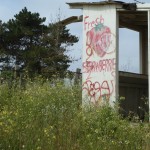

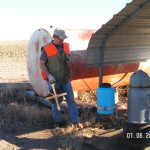
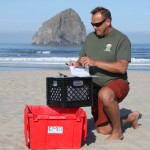
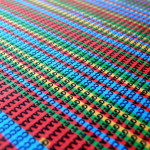
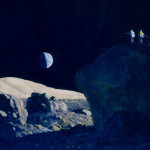
Comments are closed.